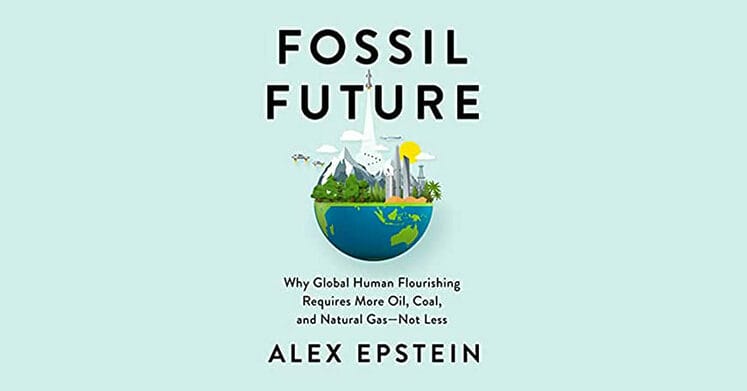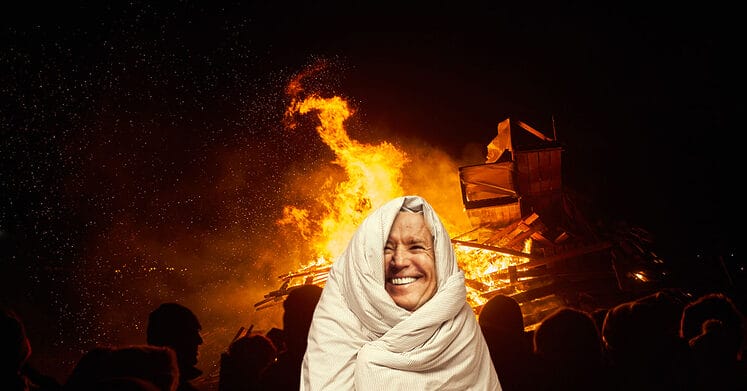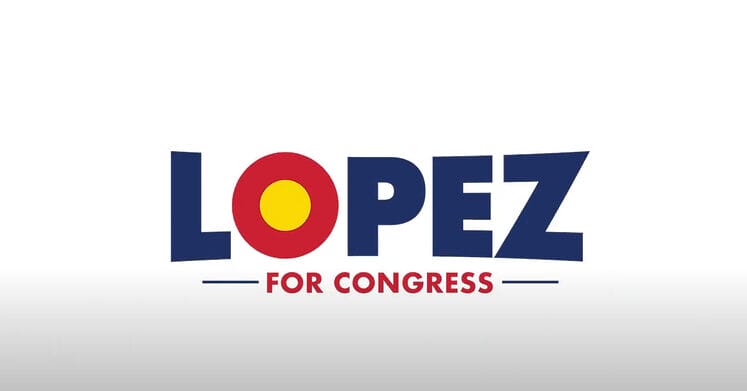In my essay The Pillars of Modern Life, I talked about how we in America are living at the pinnacle of the pinnacle of human existence on this planet. I wrote about how the amazing modern life we enjoy is enabled by three things: limited government, free-market capitalism, and fossil fuels. Philosopher and energy commentator Alex Epstein gives us an in-depth look at just how much our modern world relies on fossil fuels, and how the world needs more fossil fuel development and use.
This book is immensely important and should be read by anyone who is interested not only in continuing to live a comfortable, modern life, but also in helping the billions of “unempowered” people to rise to the levels of living that we take for granted.
The book starts with a note to the readers of his previous book The Moral Case for Fossil Fuels, published in 2014. Honestly, when I saw that title, I was taken a bit aback – after all, our current culture views fossil fuels as intrinsically bad, and my vision of them was tainted by this at the time. Upon reading the book, however, I realized that there is indeed a strongly moral case for fossil fuels, and this has strongly influenced my thinking on energy, the environment and human flourishing ever since.
If you haven’t yet read The Moral Case for Fossil Fuels, I encourage you to do so…after reading Fossil Future.
Overview
Fossil Future consists of 4 parts divided into 11 chapters. In Part One, Epstein establishes the framework for future discussions throughout the book. He reviews how our “knowledge system” (see definition below) ignores the massive and unique benefits we derive from fossil fuels and focuses on the “catastrophic” side effects of using fossil fuels.
In the chapter on the “anti-impact framework” he discusses how our knowledge system is operating on a framework that holds zero human impact on the Earth as the highest moral value. Our moral values define the frameworks through which we view the world, how we evaluate choices and make decisions. We all have a moral framework, but we are not taught to think about them.
In answering the question of why our mainstream knowledge system consistently ignores the benefits of fossil fuels while exaggerating the side effects, Epstein concludes that the mainstream knowledge system is operating on a framework whose “…primary moral goal is anti-human.1 Let me repeat that: anti-human, or as I’ve stated elsewhere: Anti-Life.
The distinguishing characteristic of the anti-impact framework is opposition to anything that humans do that impacts nature. The believers in this framework object to fossil fuels because of CO2 emissions. They object to large-scale hydroelectric because it interferes with free-flowing rivers. They object to nuclear power because of radiation and long-term waste. They even object to solar and wind because of the significant impacts that the mining, land use and harm to various species involved with wind and solar have on nature.
The dominant view in our society today is a “…false assumption that leads anyone holding it to expect that all forms of significant impact on nature will inevitably be self-destructive”. Epstein calls this the “delicate nurturer” assumption. “The delicate nurturer assumption is the assumption that Earth, absent human impact, exists in an optimal, nurturing “delicate balance” that is as stable, sufficient, and safe as we can hope to expect.”2
The bottom line is, our dominant knowledge system assumes that any human impacts on the Earth are ultimately harmful, and that the Earth, without our being here, would be a safe, nurturing place. This knowledge system holds that any human impacts on the Earth are intrinsically immoral – hence their opposition to development, energy use and other ways we use our environment.
As Epstein demonstrates throughout the book, our dominant knowledge system is exactly 180 degrees wrong when it comes to fossil fuels and the climate impacts of rising CO2.
In Part Two – Benefits, Epstein goes on to catalog at length the benefits of fossil fuels to our modern way of life.
Imagine that you are dropped in the middle of nowhere – a desert, a mountain range, a prairie, a tropical island. With only the labor that you yourself using your body can produce, and in the absence of fossil fuels or any other modern technologies, how long do you think you would live, and how much of your time would be taken up in securing life’s bare essentials? This thought experiment should be enough to put the “delicate nurturer” assumption to rest once and for all. Except in certain places at certain times, Earth is largely hostile to unassisted human life, and fossil fuels make our world more livable in countless ways.
Chapter Four lists many of the ways that fossil fuels – which he categorizes as “ultra-cost-effective, on-demand, versatile, global-scale energy” – transform our world from unlivable to very livable.
Starting with a review of human weakness on a “naturally deficient and dangerous planet”, Epstein analyzes how human life has exponentially improved using a variety of metrics including life expectancy, GDP, and population.
Key sections of this chapter include a review of “Humanity’s Unprecedented, Fossil-Fueled Productivity and Progress”, and how fossil fuels:
- Power ultra-cost-effective machine labor, which frees up human mental labor,
- Allows for super-specialization and rapid innovation,
- Provides for an unnaturally nourishing world,
- An unnaturally safe world through improved shelter, sanitation and health care.
The later part of the chapter reviews how the benefits of fossil fuels – ignored by the mainstream knowledge system – completely overwhelm the side-effects.
Part Two is rounded out by a discussion of the unique and expanding cost-effectiveness of fossil fuels including the “secret sauce” that makes fossil fuels so impactful to our modern way of living, followed by an extensive discussion of the realities of alternative energy sources – including solar and wind – as opposed to the distortions and lies about them.
In Part Three Epstein talks about the climate side effects of fossil fuels. One thing that stands out is that he totally concedes that fossil fuels contribute to rising CO2 levels and “climate change”. He freely states up front that he is not a “climate denier”. (By contrast, I believe that the Earth’s climate is changing, but that the change is due to natural causes, and that human impacts are only a minor factor.)
In Chapter Seven Epstein discusses how our modern “empowered” world uses fossil fuels to establish “climate mastery” – using fossil fuels to create strong, insulated structures, heating machines for when it’s cold and cooling machines for when it’s hot.
He also talks about how more historical climate deaths over time have been attributed to cold, not heat, and how warming primarily affects the already colder parts of the planet, not the planet as a whole.
Consider the City of Chicago: “For example, a 2 ℉ warming in a place like Chicago, with a hundred-plus-degree range of temperatures during the year, doesn’t mean that Chicago is now “warm”. It means that, if the warming were uniformly distributed, the city’s temperature range would go from a climate of -20 ℉ to 95 ℉ to a climate of -18 ℉ to 97 ℉.”3
One of the key ideas here is that as fossil fuel use has increased over the last century, climate disaster deaths have plummeted – quite dramatically. That is what he means by “climate mastery”.
Through this chapter, Epstein discusses various climate-related disasters through recent history, and how such death tolls are unimaginable in today’s world.
In chapters Eight and Nine, Epstein discusses “systemic climate distortion” and the full context of rising CO2 levels. I’ve summarized some points from these chapters below. Throughout the book, Epstein documents his assertions with exhaustive and thorough references. Needless to say, he compels us to think about climate, CO2 and the history of our planet in completely different ways than we’ve been taught by the mainstream knowledge system.
The final two chapters in Part Four focus on how energy freedom is related to overall freedom, and governments that fulfill their proper roles: protecting private property rights and enforcing contracts. Alex Epstein, as a former fellow at the Ayn Rand Institute, is very conversant about the issues of freedom and the proper role of government, and he discusses these at length in the penultimate chapter.
In the final chapter, Epstein discusses why he’s optimistic about the future, despite overwhelming odds, and how to frame the positive, human flourishing framework in a convincing, non-confrontational way. He encourages his readers to share his work widely, which I am attempting to do with this book review.
Key Takeaways and Definitions
One thing that I really like about Alex Epstein’s writing is that he is a very clear thinker. He writes what he wants to convey, then he proceeds to support it. His writing style follows this clarity and is very easy to follow and to read.
Here I will identify some key takeaways and definitions, because I think doing so will illustrate some of the most powerful points in this book.
Knowledge System – Epstein notes that “Whenever we hear about what the “experts” think, we need to keep in mind that most of us have no direct access to what most expert researchers in a field think. We are being told what experts think through a system of institutions and people that performs four crucial functions: (1) engage in expert research about the world, (2) synthesize the essentials from expert research, (3) disseminate essential expert knowledge to the rest of us, and (4) help us evaluate what actions to take on the basis of expert knowledge.”4
After defining this framework, Epstein discusses what makes up each part and how each can (and does) go wrong.
On the Anti-Impact Framework: “…eliminating human impact, not advancing human flourishing, is the primary moral goal driving our knowledge system in the realm of energy – and, as we will see, in many other areas.
Let’s be clear: eliminating human impact is an anti-human moral goal.
Human beings survive and flourish by impacting nature. To live at anywhere near our current level, we need to massively transform – impact – nature.”5
The “Human Flourishing” Framework: “The fundamental principle of the human flourishing framework is that advancing human flourishing should be our primary moral goal and therefore our standard of evaluation. When we evaluate continuing fossil fuel use, including both its benefits and its side-effects, our standard should be advancing human flourishing.”6
The Empowered World: About 1.5 billion people who use at least 1/3rd electricity as the average American. The U.S., Canada and Western Europe are primarily the “empowered world”.
The Unempowered World: The over 3 billion people who use almost no energy, including electricity. According to energy expert Robert Bryce, the average person in the unempowered world uses less electricity than a typical American refrigerator.”7 Of these 3 billion people, almost 800 million, or 2.4 times the number of people who live in the United States, are classified by the International Energy Agency (IEA) as having no access to electricity. 7 About 2.4 billion people, mostly in the unempowered world, use mostly wood and animal waste to cook and heat their homes.7 (Can you imagine?)
CO2, Average Temperatures, and History: I did not know this, but in our current era, global CO2 levels and temperatures are far lower than they have been throughout most of history.8
“Since 1850, all of our fossil-fueled civilization has increased the amount of CO2 in the atmosphere from just under 0.03 percent – 280 parts per million – to just over 0.04 percent – 420 parts per million.
By many estimates the height of CO2 levels was above 6,000 parts per million [or 0.6 percent] – almost fifteen times today’s level.”9 [Emphasis mine. Additional calculation mine]
In other words, we are currently near the estimated lows for both temperatures and CO2 levels and if it were any colder we’d be in an ice age. Our planet has gone through multiple cooling and warming cycles before now, all in the absence of human-caused carbon dioxide emissions. As Epstein says: “…there are enormous historical changes in climate, including shifts in CO2 and temperature – often going in opposite directions – demonstrating that CO2 is not the overriding driver of climate that it is portrayed as.”9
The fact is, life thrived on Earth at higher CO2 and temperature levels than we have now, so rising CO2 levels is not a harbinger of “climate apocalypse” nor of the end of our civilization as we know it. What does endanger our civilization is the anti-impact framework and the misguided desire to eliminate fossil fuels.
Conclusion and Call to Action
In Alex Epstein’s words: “Climate emergency” and “climate crisis” are no longer treated as predictions about the future. They are treated as descriptions of the present – even though in the present we are safer from climate than any human population has ever been.
Given that I regard continuing, expanding fossil fuel use as essential to global human flourishing, I regard “net-zero” proposals as apocalyptically as others regard fossil-fueled climate change. Net-zero policy, if actually implemented, would certainly be the most significant act of mass murder since the killings of one hundred million people by communist regimes in the twentieth century – and it would likely be far greater.
Because net-zero policies are so apocalyptic, I believe they will never be implemented consistently. In particular, China, Russia and India have given every indication that they will not adopt such policies.”10 [Emphasis mine]
I agree completely with Epstein’s observations and conclusion above. While he is primarily focused on fossil fuels, I am concerned that our current knowledge system is attacking not just fossil fuels, but all three pillars of modern life. We are in an existential battle for our future.
I urge everyone to read this book, and to engage in being a champion for fossil fuels…and for capitalism and limited government.
As of this writing, the so-called “Inflation Reduction Act” (a complete lie) has been passed and is awaiting Joe Biden’s signature. This terrible bill represents another all-out assault on oil and gas companies and will make inflation even worse.
How can you fight back? Register to vote, and then vote all Democrats out of office this coming November. They are manifestly unfit to govern, provably anti-life, and have put our country on a path to disaster.
Stand up and fight for your modern life. Never take it for granted. For the vast majority of us, being in the “empowered world” is an accident of birth. To earn it, we must fight for it.
By Richard D. Turnquist
August 18, 2022
________________________________________________________________
1Epstein, Alex (2022) Fossil Future: Why Human Flourishing Requires More Oil, Coal, and Natural Gas – Not less. Penguin, page 75
2 Ibid, pages 90-91
3 Ibid, page 257
4 Ibid, page 9
5 Ibid, page 80
6 Ibid, page 97
7 Ibid, page 27
8 Ibid, page 322-323
9 Ibid, page 322










Responses